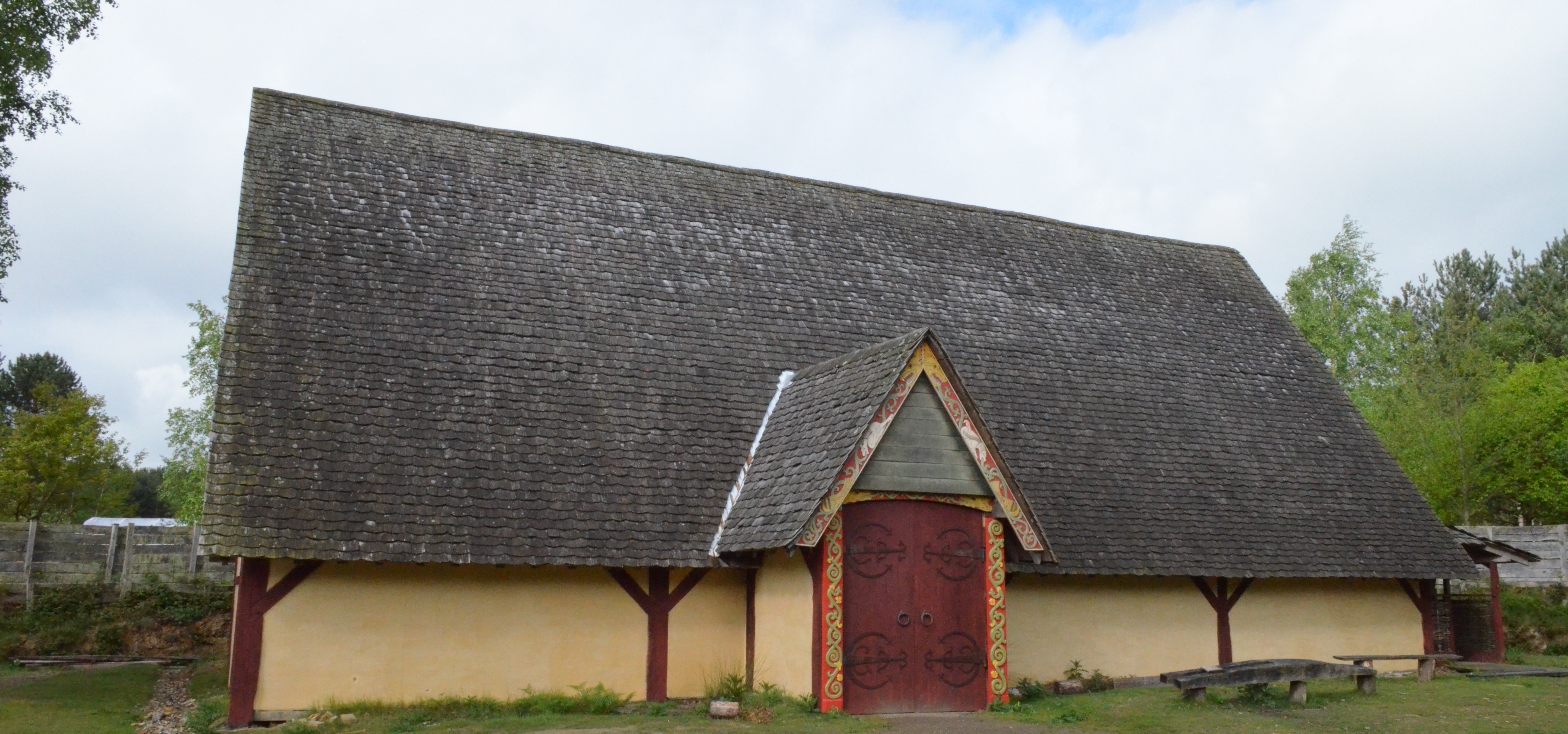
Wychurst
Alone of all re-enactment societies, Regia Anglorum owns a permanent site. Situated about sixty miles from central London and in a patch of secluded woodland near Canterbury in Kent. We have constructed a fortified manor house from the Late Anglo-Saxon period. This is a project that we have been working on for over 20 years now and has come on leaps and bounds from its origins. Where once was a Corsican pine plantation, now is a mighty longhall with defensive palisade and auxillery buildings. It has become a home away from home for members of the society, and work continues to improve the site every year….
It was a dream we had….

Imagine, if you would, leaving your modern self behind at our gates. As you move forwards, you travel back through a millennium of history.
Between the watchtowers of the burgh, you see our Longhall that dominates the tree-girt enclosure. As you approach, the sheer scale of the building takes your breath away. Ahead, within its walls, the sounds of feasting and lively conversation flow out from beneath its eaves. Pale smoke filters out from beneath the oak shingles.
Off to one side, a wood store is occupied by a pair of disgruntled workers who have been given the chore of splitting wood for the longhall’s hearth-fire. Opposite, a forge rings out with the sound of heated metal being studiously hammered into shape by a diligent and antisocial smith.
Tents are scattered here and there. Between them, there is hustle and bustle of activity as people rush to prepare their own offerings to this important occasion.
This is the dream on which Wychurst was built, to create as authentic an atmosphere as possible to carry out our hobby, it has become a way for us to, if but for a brief moment, to think to ourselves; “It must have been just like this”.
Origins

It was conceived, planned and constructed by our members – few of whom are professionals in the classic sense of the word. What you see is the result of many long hours of research, discussion, supposition and the practical application of skills with which our ancestors would have felt at home.
The site was cleared in 2001 and work on the Longhall commenced at Easter the following year. At the end of 2004, the main structure of this 20m × 10m × 10m building was completed and before the onset of winter, we had clad most of the roof with softwood sarking boards, awaiting the first 10,000 hand-cleft oak shingles for delivery in 2005. That year saw the completion of the porches and the commencement of the huge task of nailing on the shingles. Walling advanced well, too. In 2006, the front roof was completed and shingling advanced about a third of the way up the back roof. The walls were completely infilled, doors and hinges were fitted and our hall was secure for the first time. 2007 saw the completion of shingling, some 18,000 eventually finding their way onto the roof.
It is an impressive sight and is certainly the largest reconstructed early mediaeval building in private hands in Europe. Built entirely of English oak, all of which has been harvested from trees growing in Kent, (many within a couple of miles of the site), the site in general and the Longhall in particular, has been conceived, planned, purchased, designed and constructed by our members. What you see is the result of many long hours of research, discussion and the practical application of skills with which our ancestors would have felt at home.